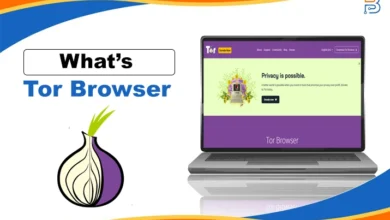Internet for All: 10 Simple Ways to Make Sure Everyone Can Get Online

The internet is like a superhighway, connecting us to info and opportunities. But why can’t everyone get on it?
We need better internet roads (like broadband and Wi-Fi), affordable passes (plans and devices), and fair rules (regulations and partnerships). We should create a world where everyone can enjoy the benefits that the internet provides. Here, we explore ten strategies to make the internet a global equalizer, ensuring its power reaches every corner of our planet.
Why Universal Internet Access Matters
Beyond being a technological jump, universal internet access is a key driver of global progress, equality, and empowerment. The internet can go beyond, breaking down barriers and democratizing access to information, education, and opportunities.
Economic Impact
Universal internet access is a catalyst for economic development. It provides opportunities for innovation, and entrepreneurship while leveling the playing field for people and companies everywhere.
Accessible education serves as the basis for society’s progress. It enables people to gain the knowledge and abilities essential for both personal and professional development.
Social Inclusion
Also, universal internet access fosters social inclusion. It connects diverse groups, bridging geographical divides and promoting a sense of belonging.
Having access to internet resources promotes engagement by enabling people to fight for their rights, take part in international discussions, and advance democracy.
Cultural Empowerment
Moreover, universal internet access promotes cultural exchange.
It empowers underprivileged populations by enabling the exchange of different viewpoints and experiences, providing them with a voice and a means of social and economic advancement.
Ensuring accessibility also involves initiatives like the ACP Program Alabama, ensuring reduced-rate communication services for greater affordability.
10 Strategies to Promote Universal Internet Access
Digital Infrastructure Investment
Funding for broadband network expansion is needed from both public and private sources, especially in rural areas that are underserved. A strong digital infrastructure must include fiber optic cables, satellite technology, and mobile networks.
Furthermore, these developments are necessary to promote economic expansion, close the gap, and guarantee that everyone has equal access to opportunities.

Community Wi-Fi Initiatives
Setting up public Wi-Fi is an important strategy for providing internet access in locations with poor connectivity, like community centers, parks, schools, and open spaces.
By making it simpler for people of these communities to connect and utilize online services, this initiative increases the inclusivity and accessibility of the internet for them. Moreover, it fosters community engagement and empowers people to actively participate, breaking down barriers to information and opportunities.
Affordable Connectivity Solutions
Collaborative efforts between governments and internet service providers are essential to develop affordable data plans, internet services, and initiatives to make devices more accessible.
By working together, they ensure that using the internet is affordable and also within reach for everyone, creating a more inclusive space.
Regulatory Reforms for Market Competition
Governments should make rules that allow internet companies to compete fairly. This makes the internet better, cheaper, and more creative.
Moreover, fair competition encourages companies to work harder, leading to constant improvements and more choices for everyone to enjoy the internet availbilty. These rules ensure that internet services keep getting better over time, providing benefits to people around the world.
Public-Private Partnerships
Government and businesses teaming up is vital for solving challenges in expanding internet access. Working together, they bring in skills, funds, and tech to create lasting solutions.
This collaboration not only sparks innovation but also ensures that efforts to make the internet widely available have a bigger and better impact. It’s a powerful way to overcome hurdles and make sure everyone gets connected.
Mobile Connectivity and 5G Expansion
Investing in 5G technology and expanding mobile networks increases internet availability, providing faster and more reliable connections to a broader population.
Plus, this technological upgrade creates new possibilities for communication, entertainment, and business, enriching the overall online experience for users worldwide.
Educational Programs for Digital Literacy
Teaching people about the internet is just as important as building the roads for it. Education programs need to show how to use the internet, go around websites, and stay safe online.
Moreover, knowing these things helps everyone be more confident and secure, making the internet a better place for us all.
Inclusive Content Development
Making internet content diverse is important for everyone to use it. This means having different languages, cultural stuff, and info that everyone can understand.
Also, having a variety of content not only brings in more people but also makes the internet a place where everyone sees themselves. Ultimately, diverse content makes the online world more interesting and welcoming for everyone.
Read Also: Why Internet Drops every hour? 7 Possible Reasons and How to Fix it
Satellite Internet Services
Remote areas where installing traditional infrastructure is challenging can benefit from the connectivity provided by satellite internet services like SpaceX’s Starlink.
These services transmit the internet straight from satellites to users’ homes, revolutionizing access to opportunities and information while suggesting a dependable connection even in the most remote areas.
Government-Subsidized Initiatives
Governments play a big role in making sure everyone can use the internet. They support projects, give money for infrastructure, and encourage private companies.
Plus, they make rules saying internet access is a basic right for everyone. These steps help create a fair and connected society, ensuring everyone enjoys the benefits of the internet.
Conclusion
We should ensure internet availability, not for a tech challenge; it’s something that all people need.
By building better internet roads, creating fair rules, and teaching people how to use the internet, we’re creating a future where everyone, no matter their location or their financial situation, can enjoy the great stuff on the internet. This helps us all be more connected, learn more, and make the world a better place.






